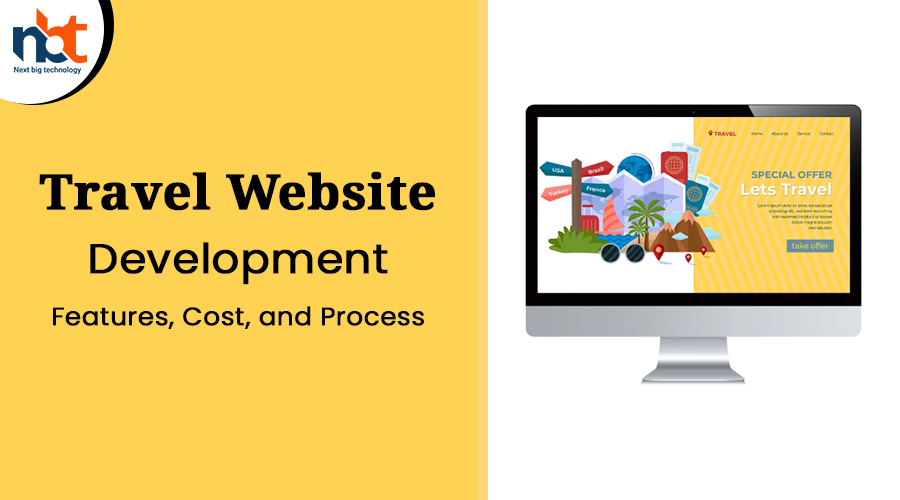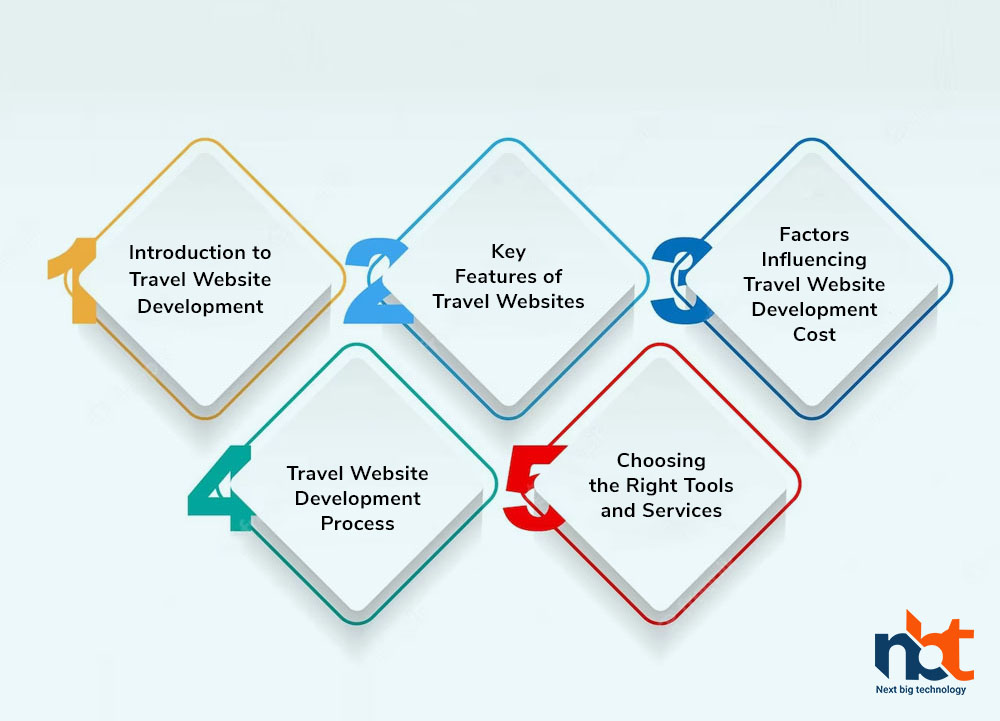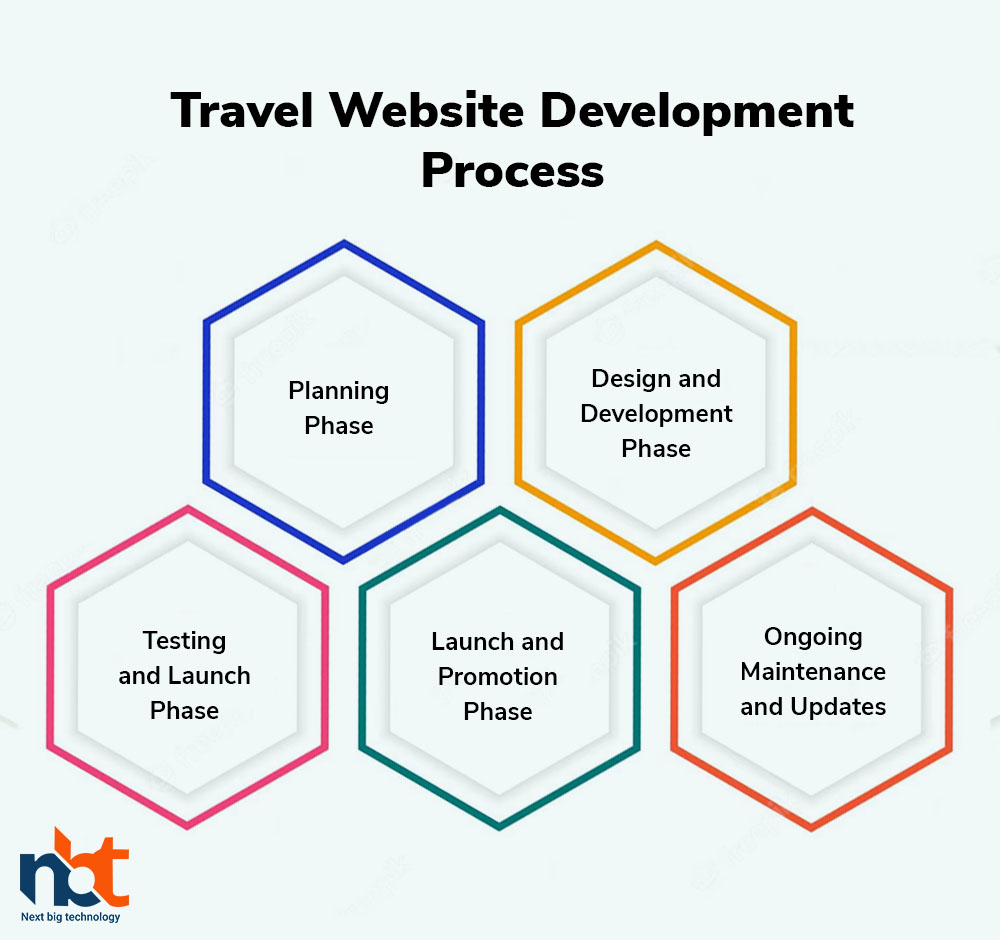In today’s digital age, travel websites have revolutionized the way people plan, book, and experience their journeys. These platforms offer a comprehensive range of tools and resources to help travelers explore destinations, compare prices, book accommodations, and create unforgettable itineraries. This guide dives into the essential features, cost considerations, and step-by-step process involved in developing an effective and user-friendly travel website.
Table of Contents
Introduction to Travel Website Development
- Understanding Travel Websites: Defining the role of online platforms in modern travel planning.
- Significance of Travel Websites: Enabling seamless travel research, bookings, and personalized experiences.
Key Features of Travel Websites
Destination Exploration:
- Travel Guides: Offering in-depth guides on popular destinations, attractions, and activities.
- Interactive Maps: Providing interactive maps to help users visualize their itineraries.
- User Reviews: Featuring authentic reviews and recommendations from fellow travelers.
Flight and Accommodation Booking:
- Flight Search: Allowing users to search and compare flight options from various airlines.
- Hotel Booking: Enabling users to browse, compare, and book accommodations.
- Travel Packages: Offering bundled deals for flights, accommodations, and activities.
Itinerary Planning:
- Custom Itineraries: Assisting users in creating personalized travel plans.
- Day-to-Day Activities: Providing tools to add activities, attractions, and dining options.
- Printable Itineraries: Allowing users to generate and print their travel schedules.
User Accounts and Loyalty Programs:
- User Profiles: Enabling users to create accounts and save their travel preferences.
- Loyalty Programs: Integrating reward programs for frequent travelers.
- Booking History: Allowing users to view their past bookings and itineraries.
Travel Resources:
- Visa Information: Offering information about visa requirements for various destinations.
- Travel Insurance: Providing options for purchasing travel insurance.
- Currency Conversion: Integrating currency converters for easy monetary calculations.
Mobile App Integration:
- Mobile Compatibility: Ensuring the website functions seamlessly on mobile devices.
- Dedicated App: Providing a mobile app for on-the-go travel planning and bookings.
Factors Influencing Travel Website Development Cost
- Functionality and Complexity: The extent of features such as flight and hotel booking, itinerary planning, and user accounts.
- Design and User Experience: Creating an intuitive and visually appealing interface for travel research and bookings.
- Content Volume: Developing comprehensive destination guides, travel resources, and user reviews.
- Integration with APIs: Incorporating third-party APIs for flight search, hotel booking, and maps.
- Custom Development: Adding unique features or integrations tailored to the website’s focus.
- Mobile Responsiveness: Ensuring the website functions seamlessly on various mobile devices.
- Ongoing Maintenance: Regular updates, security checks, and technical support.
Travel Website Development Process
1. Planning Phase
- Define Website Goals: Identify the main purpose of the website (e.g., flight booking, itinerary planning).
- Content Strategy: Plan the type of content to be featured, such as destination guides and travel resources.
- Design Concept: Determine the visual style, color scheme, and layout preferences.
- Technology Selection: Choose a content management system (CMS) or development platform.
2. Design and Development Phase
- User Experience Design: Design an intuitive interface that prioritizes travel research and bookings.
- Content Creation: Develop high-quality content for destination guides, travel tips, and reviews.
- API Integration: Integrate APIs for flight search, hotel booking, maps, and more.
- Mobile Optimization: Ensure responsive design and optimal performance on mobile devices.
3. Testing and Launch Phase
- Quality Assurance: Test all features, booking processes, and interactive tools.
- User Testing: Invite travelers to navigate the website and provide feedback on usability.
- Mobile Testing: Ensure optimal performance and layout on various mobile devices.
- Security Checks: Implement security measures to protect user data and transactions.
4. Launch and Promotion Phase
- Final Deployment: Upload the website to the chosen hosting server.
- Marketing Strategy: Promote the website through online advertising, social media, and partnerships.
- User Engagement: Encourage users to create accounts, book flights, and share their experiences.
- Analytics Setup: Implement tracking tools to monitor website traffic, conversion rates, and user behavior.
5. Ongoing Maintenance and Updates
- Regular Content Updates: Keep destination guides, travel tips, and reviews current.
- Technical Support: Address technical issues and user inquiries promptly.
- Performance Optimization: Regularly optimize website speed and loading times.
- Security Measures: Implement regular updates, security patches, and encryption.
6. Choosing the Right Tools and Services
- Content Management Systems (CMS): Explore options like WordPress, Joomla, or platforms tailored to travel.
- API Integration: Consider integrating flight search APIs (e.g., Skyscanner, Google Flights) and hotel booking APIs.
- Booking Engines: Utilize third-party booking engines for flight and accommodation reservations.
- Mobile App Development: Develop a dedicated mobile app for enhanced user experience.
- Analytics and Reporting Tools: Implement tools to track user engagement, conversion rates, and popular destinations.
Conclusion
A well-designed travel website serves as a valuable resource for travelers, helping them explore destinations, plan itineraries, and make seamless bookings. The features you incorporate, the design complexity, and the ongoing maintenance efforts all contribute to the overall cost. By following a structured development process, leveraging appropriate tools, and prioritizing user experience, you can create a dynamic online platform that empowers travelers to embark on unforgettable journeys while discovering new destinations, culture, and experiences.











